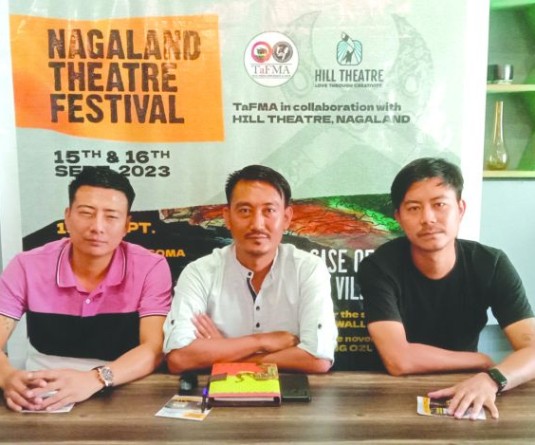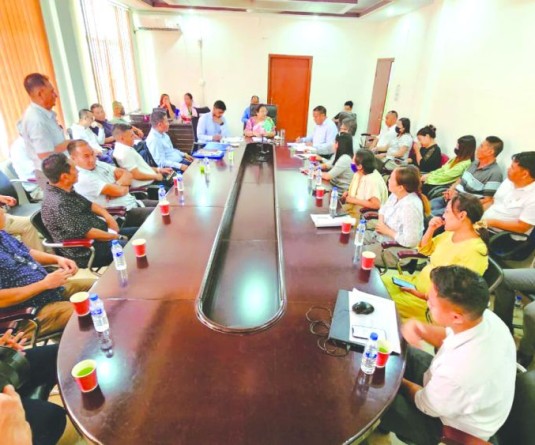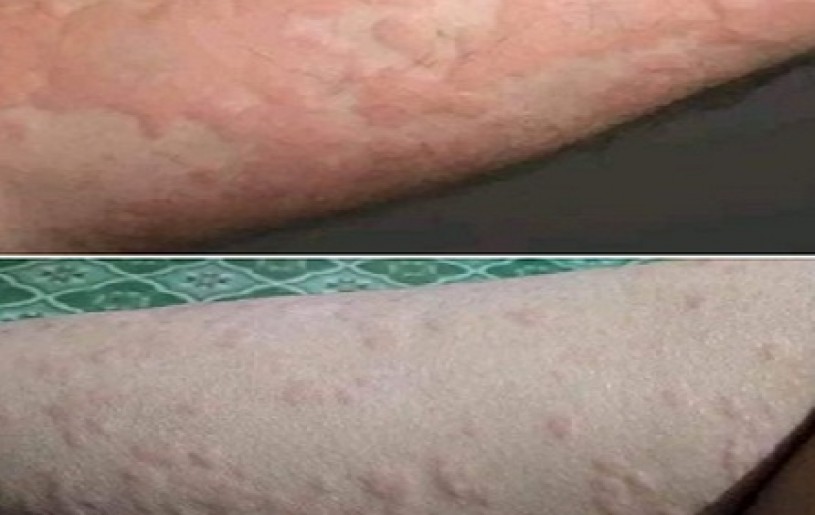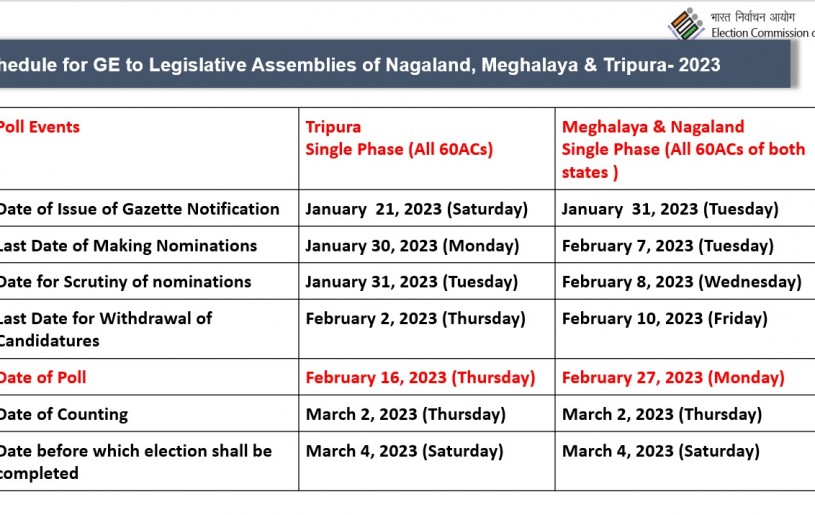COVID-19: Is Nagaland H&FW’s awareness strategy foolproof?
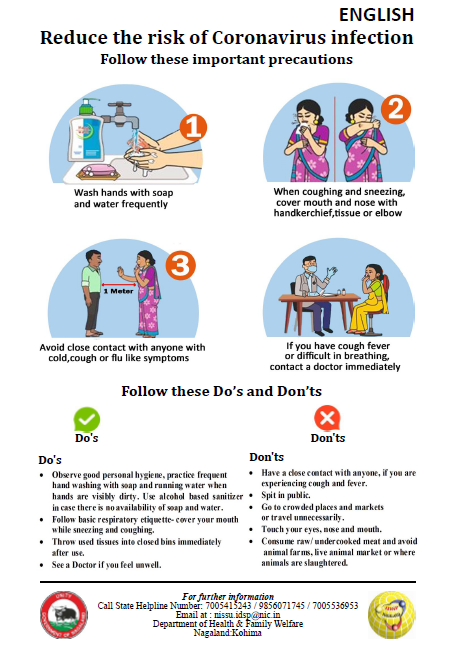
A screenshot of the advisory by the Department of Health & Family Welfare, Nagaland.
Constantly updating and responding to changing situation, says department
Morung Express News
Dimapur | April 8
As Nagaland prepares in full gear to combat any possibility of COVID-19, questions have been raised regarding an advisory from the Department of Health & Family Welfare, Nagaland titled, “Reduce the risk of Coronavirus infection.”
In the advisory, important precautionary measures as well as ‘Do’s & Don’ts’ to be followed are given.
In a letter to the Nagaland Chief Minister, Rachunliu G. Kamei, PhD, a Naga Scholar, currently based in Ireland, flagged some issues with the advisory.
“It should be noted that there are critical errors in the basic safety/preventative instructions provided on the State-government mandated department links,” she pointed out.
Among others, Kamei, a Herpetologist and a leading biologist from North East India, highlighted the instructions “one-meter distancing, washing hands when visibly soiled, ‘see’ a doctor if you feel unwell.”
In one of the Do’s section in the advisory by the department, the citizens are advised to “practice hand washing with soap and running water when hands are visibly dirty...”
It also called for social distancing of 1 metre and further advised to “see a doctor if you fell unwell.”
According to Kamei, public awareness recommendations in other countries by nodal agencies such as the Centers for Disease Control and Prevention, United States or the National Health Service, the United Kingdom “are advising distance of at least two meters...”
Again the common measure adopted is washing hands regularly and whether it is visibly soiled or not is “completely irrelevant,’ she pointed out.
Most advisories called for contacting “local doctor/helpline by telephone (not in person) if unwell to reduce the spread to local doctors and high-risk patients seeking medical help for non-Covid-19 related health issues,” she added.
It must be mentioned here that while the H&FW might have ‘visibly’ erred on hand washing and doctor’s visit, the World Health Organisation and Union Ministry of Health & Family Welfare too advised maintaining “at least 1 metre (3 feet) distance.”
A news item based on the letter, written on April 5 was published by The Morung Express on April 8.
While the link to the advisory was available on the Department’s website was available till April 7, on Wednesday evening, the content were no longer available when The Morung Express checked.
The department, it is presumed, is currently updating the information as the link on the H&FW was also disabled.
The translations of the advisory were also shared in different Naga languages. However, in one translation accessed by The Morung Express, it was bit different from English and seems to adhere to the common practice.
In Ao translation, the advisory called for ‘washing hand regularly’ whether one hand is dirty or not.
It could not be ascertained whether similar changes were made in other languages.
On a learning curve: H&FW Dept
When contacted for comment regarding the issue, an official associated with H&FW’s Information, Education & Communication (IEC) said that situation is dynamic, and the department is constantly on a learning curve given the extraordinary situation.
Any errors of omission and commissions bought to the notification of the department are welcome, and necessary rectification can be done after review, he said.
While he was not aware of disabling of the link, the official said that updated version will be uploaded if warranted.
The translations in several Naga languages were also done to meet the exigency of situation and therefore may also not be error-prone, in terms of typos and other issues, the official said. It urged the public to understand the situation.
Apart from flagging some issues, Kamei also appealed the Chief Minister of Nagaland for working out a mechanism to disseminate information and create native language community awareness campaign on COVID-19.
As mass communication is a critical weapon against Covid-19, such mechanism would benefit a large portion of the most vulnerable people (in rural areas) who are either without or with very limited access to online resources, she added.
When the State Government—the trusted source—provides access to vital correct information it will reduce the social-media problem caused by spreading false information, she added, further offering her service in the production of the “script based on the internationally accepted and published guidelines,” if required.


